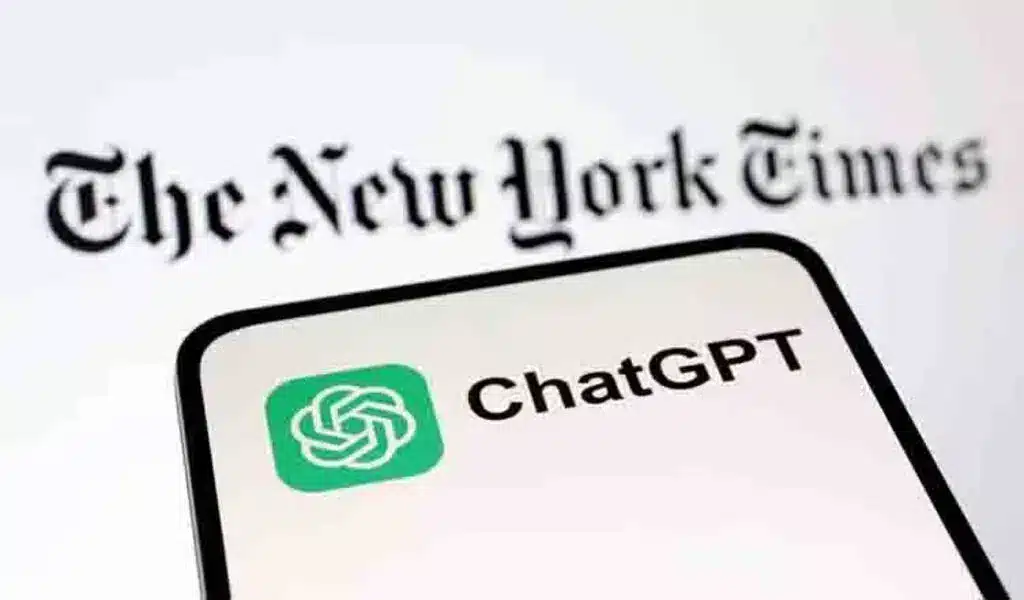NEW YORK — After some users claimed that one of OpenAI’s ChatGPT voices resembled Scarlett Johansson—who was well-known for lending her voice to a fictional, and at the time futuristic, AI assistant in the 2013 movie “Her”—the company said it intends to stop using the voice.
OpenAI posted on the social media site X Monday that it is “working to pause” Sky, one of the five voices that ChatGPT users can select from. The business claimed to have “heard questions” and wanted to respond regarding how it chooses the realistic audio options for Sky, its main artificial intelligence chatbot.
In a companion blog post explaining the selection process for ChatGPT’s voices, OpenAI also quickly refuted the rumors circulating on the internet about Johansson.
Is That ‘Her’? OpenAI Pauses A ChatGPT Voice After Some Say It Sounds Like Scarlett Johansson
“Sky’s voice is not an imitation of Scarlett Johansson but belongs to a different professional actress using her own natural speaking voice,” the business stated. “We believe that AI voices should not deliberately mimic a celebrity’s distinctive voice.” It said that for privacy concerns, it could not provide the names of its voice performers.
Based in San Francisco, OpenAI remained silent about the reasons it continued to choose to suspend Sky’s use.
In September, OpenAI initially released ChatGPT’s speech capabilities, featuring all five voices and letting users converse with the AI assistant. Previously exclusive to premium customers, “Voice Mode” will now be free for all mobile app users, according to OpenAI’s announcement in November.
Additionally, ChatGPT’s interactions are becoming increasingly complex. Last week, the most recent version of OpenAI’s generative AI model was believed to be able to identify people’s moods and even imitate human cadences in spoken responses.
Is That ‘Her’? OpenAI Pauses A ChatGPT Voice After Some Say It Sounds Like Scarlett Johansson
The most recent model, GPT-4o, according to OpenAI, is faster than earlier iterations and has real-time reasoning capabilities for text, audio, and video. During a demonstration during OpenAI’s May 13 unveiling, the AI bot conversed in real time and responded to requests for “more drama” and other emotions in its voice. It also attempted to infer an individual’s emotional state from a selfie video of their face, provided assistance with language translations, solved math problems step-by-step, and more.
The abbreviation “omni,” GPT-4o, isn’t yet generally accessible. Over the next few weeks and months, it will gradually become available to a restricted group. The model’s text and picture features are already starting to be made available, even to ChatGPT’s free users. However, the new voice mode will only be accessible to ChatGPT Plus members who have paid for it.
The capabilities of these recently revealed features have prompted even more comparisons to Spike Jonze’s dystopian romance “Her,” which centers on an introverted man (Joaquin Phoenix) who falls in love with an AI-operating system (Johansson), leading to several complications. However, most people still need to have a chance to use these features.
On the day of GPT-4o’s announcement, OpenAI CEO Sam Altman also seemed to take advantage of this, merely publishing the term “her” on the social media platform X.
Many people who saw the model’s presentations last week also noticed that certain exchanges had an oddly flirty tone. A female-voiced ChatGPT commends an employee in one video that OpenAI aired for “rocking an OpenAI hoodie,” In another, the chatbot responds to praise by saying, “Oh stop it, you’re making me blush.”
Is That ‘Her’? OpenAI Pauses A ChatGPT Voice After Some Say It Sounds Like Scarlett Johansson
This has generated discussion about the gendered approaches critics claim tech corporations have long employed to create and interact with voice assistants—a practice that predates the most recent wave of generative AI, which enhanced the capabilities of AI chatbots. 2019 saw the “hardwired subservience” inherent in default female-voiced assistants (such as Apple’s Siri and Amazon’s Alexa), even in the face of sexist taunts and abuse, according to the UN culture and science body.
In a story this week, Desi Lydic, senior correspondent for The Daily Show, remarked of GPT-4o, “This is clearly programmed to feed dudes’ egos.” “It’s obvious that a man created this technology.”
SOURCE – (AP)










